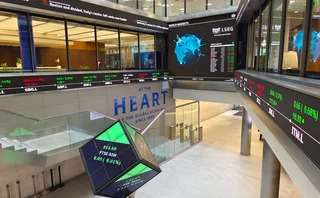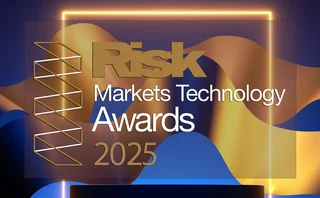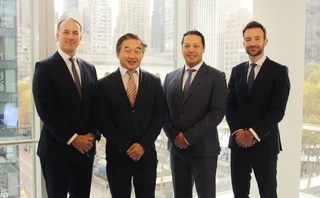
Deal of the year: Engie
Energy Risk Awards 2018: By targeting smaller players in mature basins, Engie creates a structure ripe for replication

Oil and gas production has always been a capital-intensive business and securing funding, especially for smaller players, is a constant challenge. French energy major Engie helped address this in a deal with independent exploration & production company Hague and London Oil (Halo) in November 2017. The deal facilitated Halo’s purchase of Tullow Oil’s gas producing assets in the Dutch North Sea.
The €10 million ($12 million) structured finance and offtake agreement showcases a structure that Engie believes can be replicated globally to support small and medium-sized producers that are buying acreage divested by oil majors. In mature basins around the world, oil majors are shedding assets in pursuit of newer and larger finds that satisfy their need for scale. For smaller E&P companies, developing the remaining resources in these regions can be a relatively low-risk operation, but accessing the upfront capital is often a struggle.
Onerous financial regulation has driven many of the traditional bank lenders out of the market and those left are often reluctant to lend to juniors that lack the balance sheet strength to face a sustained period of low prices. Therefore, new financing solutions are needed.
Under the deal, which was signed in April 2016 as a Memorandum of Understanding, Halo will find, buy and manage low-risk natural gas production assets in Europe. Engie will then provide pre-financing in return for a gas offtake, as well as implementing risk-management solutions to enable Halo to hedge against price volatility.
The deal plays to a number of the French energy company’s strengths, according to Daniel Simmons, originator at Engie. “This opportunity matched very well with three of our main activities,” he says. “The gas offtake element is obviously a very standard service for us – Engie has been doing that for a very long time. As a large derivatives house, we were also able to embed derivatives into the structure to manage risk. So [we] put those two parts together and then added the financing element in order to secure the package.”
Mircea Caratas, chief commercial trading officer of Engie Global Markets, adds that, with this deal, the firm has been able to fill the vacuum left in the commodities space by the retrenchment of many financial players in recent years. “This is the type of financing that used to be secured by the banks five years ago,” he says. “But when they pulled out of the commodities space they left room for this kind of structured deal. Engie wanted to step in to secure this risk for the smaller and medium producers.”
For smaller players facing adverse market conditions, the ability to curb the impact of a sustained drop in natural gas prices is likely to ease the concerns of potential investors, helping to secure more funding for asset development.
Only the very largest, commercially stable energy firms would have the financial muscle to make this sort of deal possible, notes Caratas. “We have a good rating and a solid group balance sheet, which gives us the flexibility to put together this kind of financial and physical solution.”
This is the first time Engie has completed a deal like this and now they are competing head-to-head with the large trading houses that would traditionally do such transactions
Andrew Cochran, Hague and London Oil
Halo’s chairman and interim chief executive, Andrew Cochran, agrees that Engie brought a unique element to the deal in terms of both its trading capacity and its balance sheet. “This is the first time Engie has completed a deal like this and now they are competing head-to-head with the large trading houses that would traditionally do such transactions,” he says.
On the other side of the deal, taking ownership of the gas is an attractive option for Engie given the recent divestment of its upstream oil and gas assets. Engie received an offer for its oil and gas business in May 2017 from investment firm Neptune Energy Group, completing the sale in February 2018. It also announced an agreement to sell its upstream and midstream liquified natural gas business to French oil and gas major Total in November 2017. These transactions form part of an ongoing transformation plan that involves Engie moving away from more traditional sources to focus on carbon reduction and green energy.
Halo drew down €6 million of the original €10 million facility to fund the Tullow purchase, leaving €4 million for additional capital needs in 2018. There is also scope to expand the facility to finance similar acquisitions in the future, and Cochran says Halo expects to work with Engie again after the success of this first transaction.
In addition to the potential to strike more deals of this nature with Halo, Simmons believes this structure can also be replicated with other oil and gas producers. “Similar deals in the North Sea region are pretty likely,” he says. “And we are already seeing demand in other areas of Europe.”
Only users who have a paid subscription or are part of a corporate subscription are able to print or copy content.
To access these options, along with all other subscription benefits, please contact info@risk.net or view our subscription options here: http://subscriptions.risk.net/subscribe
You are currently unable to print this content. Please contact info@risk.net to find out more.
You are currently unable to copy this content. Please contact info@risk.net to find out more.
Copyright Infopro Digital Limited. All rights reserved.
As outlined in our terms and conditions, https://www.infopro-digital.com/terms-and-conditions/subscriptions/ (point 2.4), printing is limited to a single copy.
If you would like to purchase additional rights please email info@risk.net
Copyright Infopro Digital Limited. All rights reserved.
You may share this content using our article tools. As outlined in our terms and conditions, https://www.infopro-digital.com/terms-and-conditions/subscriptions/ (clause 2.4), an Authorised User may only make one copy of the materials for their own personal use. You must also comply with the restrictions in clause 2.5.
If you would like to purchase additional rights please email info@risk.net
More on Awards
Clearing house of the year: LCH
Risk Awards 2025: LCH outshines rivals in its commitment to innovation and co-operation with clearing members
Best use of machine learning/AI: CompatibL
CompatibL’s groundbreaking use of LLMs for automated trade entry earned the Best use of machine learning/AI award at the 2025 Risk Markets Technology Awards, redefining speed and reliability in what-if analytics
Markets Technology Awards 2025 winners’ review
Vendors jockeying for position in this year’s MTAs, as banks and regulators take aim at counterparty blind spots
Equity derivatives house of the year: Bank of America
Risk Awards 2025: Bank gains plaudits – and profits – with enhanced product range, including new variants of short-vol structures and equity dispersion
Law firm of the year: Linklaters
Risk Awards 2025: Law firm’s work helped buttress markets for credit derivatives, clearing and digital assets
Derivatives house of the year: UBS
Risk Awards 2025: Mega-merger expected to add $1 billion to markets revenues, via 30 integration projects
Interest rate derivatives house of the year: JP Morgan
Risk Awards 2025: Steepener hedges and Spire novations helped clients navigate shifting rates regime
Currency derivatives house of the year: UBS
Risk Awards 2025: Access to wealth management client base helped Swiss bank to recycle volatility and provide accurate pricing for a range of FX structures







